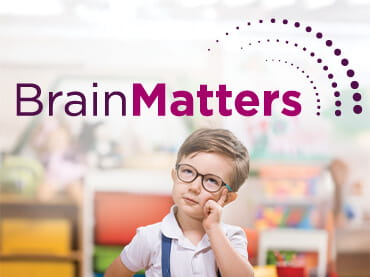- Find a Provider
- Locations
-
Services
- Specialties and Services
- See All Services
Specialties and ServicesBehavioral Health Care Coordination Check In Faster COVID-19 Vaccine Dermatology Driver’s Physical Express Care Flu Vaccine Services Fluoride VarnishLactation Consulting Newborn Care Nutrition Services Online Scheduling Patient Portals Primary Care Medical Home ImPACT® Testing ResearchSame-day Sick Appointments Sports Physicals Substance Use Education Teen Resources Transition to Adulthood Video Visits Walk-in Services Weight Management - Health Resources
-
About Us
- About UPMC CCP
- Patient Resources
About UPMC Children's Community Pediatrics
Social Media and Your Child’s Brain
Social media is everywhere — and for many kids and teens, it’s woven into the fabric of daily life.
In fact, 95% of teens say they use some form of social media, and one-third say they’re on it “almost constantly.”1
It’s easy to understand why. Likes, comments, and instant messages can offer connection and entertainment. But what’s happening inside your child’s brain when they scroll, swipe, and post — and how can parents help them navigate it in a healthy way?
The Brain on Social Media
Your child’s brain is still developing — especially the prefrontal cortex, which manages decision-making, impulse control, and emotional regulation. Social media taps directly into the brain’s reward system, releasing dopamine (the “feel-good” chemical) every time they get a like or notification.
While that burst of happiness can feel great, it can also:
- Encourage compulsive checking for updates and messages.
- Fuel social comparison, which research links to lower self-esteem.
- Increase anxiety and fear of missing out (FOMO).
- Disrupt sleep — the CDC reports that 57% of teens get less than the recommended amount of rest, with late-night screen time being a major factor.
Over time, heavy use — especially more than three hours per day (as noted by the U.S. Surgeon General) — has been linked to higher risks of depression and anxiety in teens.
The Upside — When Used Well
Not all social media use is harmful. In fact, it can be a source of support and self-expression, helping kids:
- Stay connected with friends and family.
- Explore hobbies and new skills.
- Engage with positive, educational content.
- Find communities where they feel understood.
The key is balance and intentional use — not simply cutting it off, but teaching kids how to use it wisely.
Helping Kids Build a Healthy Relationship with Social Media
UPMC CCP’s Brain Matters program encourages parents to actively guide their child’s digital habits. Here’s how to start:
Talk about it — often
Ask how certain posts or interactions make them feel. Discuss the difference between online and real life, and encourage critical thinking about what they see.
Set boundaries together
Agree on rules for when and where devices can be used — like no phones at dinner or after a certain time at night.
Model mindful use
Kids notice your habits. Show them that you can put your phone down and be present.
Encourage offline activities
Support hobbies, sports, reading, and face-to-face time that doesn’t involve screens.
Keep the bedroom tech-free
Protect sleep by charging devices outside the bedroom overnight.
Understanding how social media affects the brain is just one part of supporting your child’s mental health. Brain Matters offers parents practical tools and expert insights for raising resilient, emotionally healthy kids — online and offline.
Guidance for Growing Minds
At UPMC Children’s Community Pediatrics, we’re passionate about helping families understand the incredible journey of brain development. That’s why we created Brain Matters—a program offering expert guidance, parenting resources, and tools to support your child’s brain health from infancy through the teen years.
Explore Brain Matters today.





